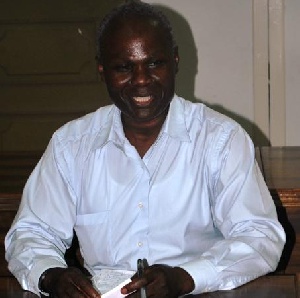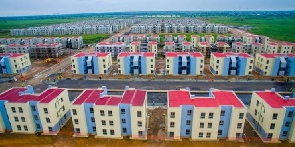A Canadian academic has described as unfair, the requirement by Ghanaian universities for HND graduates to do two-year top-ups before awarding them Bachelors degree.
Professor Joseph Apaloo, who served as a Visiting Professor at the Kumasi Polytechnic for two months noted that students graduating from Polytechnics in the country should not go to the universities for top-ups, describing the requirement as unjust and a complete waste of time and money.
Professor Apaloo made the remarks at a farewell ceremony held in his honour by the management and staff of Kumasi Polytechnic.
Explaining further, Professor Apaloo said having undergone four years of study to attain the HND certificate, the Polytechnic graduate is already skilled and practically ready for the workplace unlike a university graduate who requires further practical training to fit into the workplace.
“Therefore, requiring the Polytechnic graduate to do two additional years as top- up to get the first degree is blackmail, to say the least,” he said. Professor Apaloo, who is a lecturer at the Department of Mathematics, Statistics and Computer Science at the St. Francis Xavier University, Nova Scotia in Canada, stressed the need for all the ten polytechnics in Ghana to oppose the universities’ top-up requirement.
He said: “Polytechnics should come together to fight this. It is one issue that should be given priority”, by the Conference of Rectors of Polytechnics (CORPS). Professor Apaloo praised the Kumasi Polytechnic for introducing Bachelor of Technology (BTech) programmes but stressed the need for further investment in laboratories and retraining of academic staff.
The upgrading of the qualification of teaching staff, according to him, is a critical pre-requisite to the successful running of the BTech. He said therefore called for incentives for further studies for Lecturers of the Polytechnic, adding that, such a move would eventually benefit students and the institution.
“The structure of the BTech programmes require that the general level of qualification of teaching staff is massively overhauled while the requisite laboratories are kitted with modern equipment, to effectively support Engineering and Science,” said the Visiting Professor.
Professor Apaloo also called on the Polytechnic to take a critical look at the workload of the teaching staff as, according to him, it appeared lecturers were overstretched.
According to the Visiting Professor, Kumasi Polytechnic has the potential for growth and success. “K-Poly staff have the desire for further studies, which is good for the future of the Polytechnic. They also possess the ability to offer consulting services, research and scholarly work which are necessary ingredients for the nurturing of credible faculties,” he said.
The Visiting Professor, who was attached to the Centre for Entrepreneurship and Enterprise Development (CEED) and the School of Applied Science of the Polytechnic, is of Ghanaian descent.
Professor Apaloo is a lecturer at the Department of Mathematics, Statistics and Computer Science at the St. Francis Xavier University, Antigonish in Nova Scotia, Canada. He has since returned home.
Diaspora News of Monday, 1 August 2011
Source: ROBERT KYEI-GYAU

















